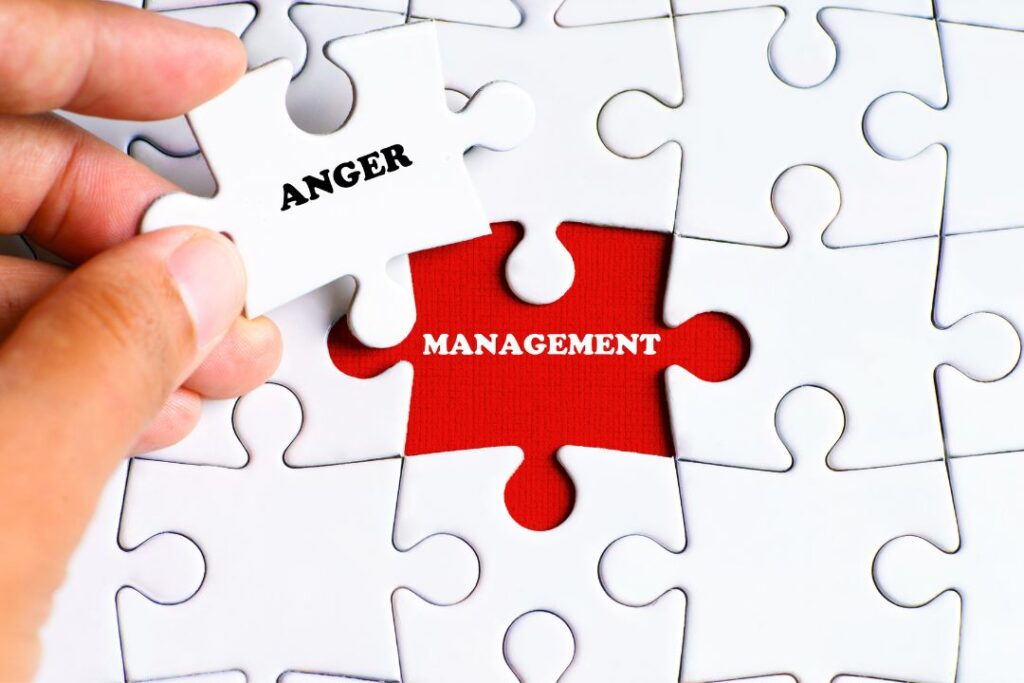Anger management therapy has been developed as more and more people are struggling with anger. It is normal, human nature to express or feel anger. However, frequent episodes of anger and frustration may become a problem over time. The feeling of anger itself is actually a healthy, normal emotion and very important. When we talk about “anger management” we are referring to the harmful and aggressive behaviors people act out in response to feelings of anger.
VeryWellMind shares: “Rage, persistent anger, or angry outbursts can have detrimental consequences for physical health, quality of life, and relationships,” says Erin Engle, PsyD, a psychologist at Columbia University Medical Center.
Anger management therapy can help minimize extreme or irrational anger-provoking situations and teach us to express and use our feelings of anger in healthy ways.
Types of Anger Management Therapy
- Cognitive Behavioral Therapy (CBT)
CBT is one of the most common therapies used for anger management. CBT helps you understand irrational triggers, develop and practice coping skills, and think, feel, and respond in effective ways to anger.
- Dialectical Behavioral Therapy (DBT)
DBT is another therapy modality that can help individuals with intense or frequent anger regain emotional control through developing emotional regulation and distress tolerance skills, mindfulness, and effective communication in relationships.
- Family Therapy
This form of therapy can be helpful in situations where anger is often directed at or involves family members and relationships. It can help you work together to improve communication and resolve issues.
- Psychodynamic Therapy
Psychodynamic therapy can help examine the psychological roots of anger and the response so that you can identify and correct unhealthy patterns.
- Psychiatric Medication Management
Psychiatric medication management assumes a combination of therapy and counseling with a prescribed medication plan. A licensed psychiatrist or a psychiatric mental health nurse can prescribe psychiatric medication for your diagnosis. A psychiatric medication provider will professionally guide you in your treatment plan and works to treat the biochemical dysregulations or biological parts of your mental health concerns or frequent feelings of anger.
What Techniques Are Involved in Anger Management Therapy?
- Identifying triggers and responses: Therapy can help you understand what contributes to your expressions and feelings of anger (both helpful and unhelpful).
- Learning strategies to diffuse anger: Anger management therapy can equip you with strategies to disrupt your anger or manage your response to it through creating pause, practicing mindfulness, and self-regulation.
- Changing attitude and thought patterns: Therapy can also involve restructuring thinking and changing beliefs related to anger, particularly if your therapist is taking a CBT approach.
Benefits of Anger Management Therapy
- Identify triggers
- Change or challenge your thinking
- Develop coping skills
- Learn relaxation techniques
- Solve effective problem-solving techniques
- Improve communication
How Can SOMA Therapy Help?
At SOMA, we have a team of professional & licensed mental health professionals who specialize in anger management therapy. Our integrated approaches cannot be found collaboratively in other group practices in Wichita. We seek to serve ALL in Wichita and offer allied services for our local LGBTQ+ community as well as the under-served, including Spanish speakers.
For more information, please contact our friendly administrative team by calling 1-316-201-6047 or by filling out the form on our contact

